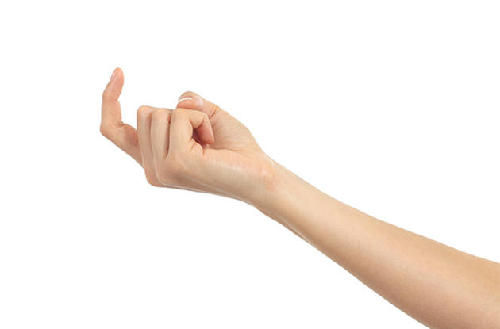双语:在国外旅行时不能做这10个手势(图)
Certain gestures that are innocent in the United States mean something completely different (and offensive) overseas. Avoid these 10 hand signals when you’re traveling abroad!
在美国无害的某些手势在国外表达的意思是完全不同的(甚至是有攻击性的)。当你在国外旅行时,别做这10个手势!
 Avoid Using In: Turkey, Brazil, Venezuela, and France.
Avoid Using In: Turkey, Brazil, Venezuela, and France.
 Avoid Using In: United Kingdom, Australia, Ireland, and New Zealand.
Avoid Using In: United Kingdom, Australia, Ireland, and New Zealand.
 Avoid Using In: The Philippines, Singapore, and Japan
Avoid Using In: The Philippines, Singapore, and Japan
 Avoid Using In: The Middle East, India, Sri Lanka, and Africa.
Avoid Using In: The Middle East, India, Sri Lanka, and Africa.
 Avoid Using In: Greece.
Avoid Using In: Greece.
 Avoid Using In: Vietnam.
Avoid Using In: Vietnam.
 Avoid Using In: Italy, Spain, Portugal, Brazil, and Colombia.
Avoid Using In: Italy, Spain, Portugal, Brazil, and Colombia.
 Avoid Using In: South Korea.
Avoid Using In: South Korea.
 Avoid Using In: Thailand.
Avoid Using In: Thailand.
 Avoid Using In: Afghanistan, Iran, parts of Italy, and Greece.
Avoid Using In: Afghanistan, Iran, parts of Italy, and Greece.
1. Turns out making a circle with your index finger and thumb is not OK in certain countries. In France, for example, it means "zero" or "worthless." In Venezuela, Turkey, and Brazil, it's a vulgar slang that will offend pretty much anyone you flash it at。
Avoid Using In: Turkey, Brazil, Venezuela, and France。
在某些国家用食指和拇指绕成一个圈是不好的。例如,在法国,这表示“零”或者“毫无价值”。在委内瑞拉,土耳其和巴西,这是一个粗俗俚语,几乎会得罪所有你对他做这个手势的人。
在土耳其、巴西、委内瑞拉、和法国请避免使用。
2. Trying to order two beers from the bartender or wish someone peace in the United Kingdom,Ireland, Australia, or New Zealand? Make sure that when you have your index and middle fingers pointed up in the V shape, your palm is facing outward. Otherwise, you're giving the equivalent of the middle finger。
Avoid Using In: United Kingdom, Australia, Ireland, and New Zealand。
想向酒保处点两杯啤酒或在英国、爱尔兰、澳大利亚或新西兰希望有人得到安宁?确保你用你的食指和中指摆出V型,并且手掌向外。否则,就相当于竖中指。
在英国、澳大利亚、爱尔兰和新西兰避免使用这一手势。
3. Want someone to come over to you? Definitely don't use your curled index finger to summon them in the Philippines—that's reserved for calling dogs and is considered very rude. And in Singapore and Japan, that motion signifies death, so unless you are the icy hand of death yourself, don't employ it。
Avoid Using In: The Philippines, Singapore, and Japan。
想叫某人来你这儿? 在菲律宾绝对不要用你的食指指召他们,那是叫狗的,并且被认为是非常粗鲁的。而在新加坡和日本,这个手势意味着死亡,所以除非你用自己死亡的冰冷的手,否则不要用它。
在菲律宾、新加坡和日本请避免使用。
4. Sorry, southpaws. You'll need to become ambidextrous—or just accept the fact that you'll probably spill food all over yourself while eating with your right hand—while in the Middle East,India, Sri Lanka, and Africa. In these countries, the left hand is traditionally seen as unclean, because it is associated with cleaning yourself after using the bathroom。
Avoid Using In: The Middle East, India, Sri Lanka, and Africa。
对不起啦,左撇子们。当你在中东、印度、斯里兰卡和非洲时,你需要变得灵巧一些,或者就接受这个事实,当你用右手吃饭时你可能会将食物洒了一身。在这些国家,左手传统上被视为不洁的,因为它与上厕所后清洗自己相关联。
在中东、印度、斯里兰卡和非洲请避免使用。
5. Don't use the palm-out, fingers-up "stop" sign in Greece, or you may not be able to stop someone from punching you in the face. This gesture is an insult to Greeks—a stigma that apparently dates back to Byzantine times, when shackled criminals were paraded through the streets and gawkers were allowed to smear charcoal or excrement in their faces using their open palms。
Avoid Using In: Greece。
不要用手心向外,五指张开。在希腊这是“停止”的标志,或者表示您可能无法阻止有人打你的脸。这个手势对希腊人是一种侮辱——显然这是要追溯到拜占庭时期的一种耻辱,当被禁锢的罪犯游街示众时,看客被允许用他们张开的手掌在罪犯脸上涂抹木炭或粪便。
在希腊请避免使用。
6. Crossing your index and middle fingers won't bring you good luck in Vietnam. There, crossed fingers symbolize a part of the female anatomy and can be considered very rude when flashed at another person。
Avoid Using In: Vietnam。
在越南,交叠你的食指和中指不会给你带来好运。在那里,手指却交叉着象征女性的一部分,对另一个人做这个动作可以认为是非常粗鲁的。
在越南时请避免使用。
7. Rocking out at a metal show or tossing up hook 'em horns (with your hand in a fist and index and pinky finger extended) is a bad idea inItaly, Spain, Portugal, Brazil, and Colombia. In these countries, the University of Texas' signature hand gesture can be used to indicate that someone's wife has been unfaithful。
Avoid Using In: Italy, Spain, Portugal, Brazil, and Colombia。
在意大利、西班牙、葡萄牙、巴西和哥伦比亚,在重金属音乐会上摇摆做出这个手势(握起拳头并伸出食指和小指)真是个不好的想法。在这些国家,德克萨斯大学标志手势可以用来表示某人的妻子对他不忠。
在意大利、西班牙、葡萄牙、巴西和哥伦比亚请避免使用。
8. Don't hail a cab or wave someone over to you with your palm facing up in South Korea. That's how Koreans summon their dogs. The proper way to wave is to move your hand up and down vertically with your palm facing down。
Avoid Using In: South Korea。
在韩国,在叫出租车和向人挥手时别把掌心对着他人。这是韩国人叫他们的狗时的动作。打招呼的正确方法是将你的手掌心朝下地上下垂直挥动。
在韩国时请避免使用。
9. The head is the most sacred part of the body inThailand. In the Buddhist faith, it's where the spirit lives. Thus, touching someone else's head or hair is a definite faux pas—so think twice before you ruffle a kid's hair or pat someone for a job well done。
Avoid Using In: Thailand。
在泰国头部是人体最神圣的部分。在佛教信仰中,这是精神所在之处。因此,抚摸别人的头或头发显然是一个失礼行为。所以在你抚摸一个孩子的头发或轻拍某人的头表示对他工作的赞赏前请三思。
在泰国请避免使用。
10. The thumbs-up signals approval in the U.S. and on Facebook, but in Afghanistan, Iran, parts of Italy, and Greece, it means "up yours." So next time you're trying to hitchhike in, say, Tuscany, you should reconsider before sticking out your thumb。
Avoid Using In: Afghanistan, Iran, parts of Italy, and Greece。
在美国和在Facebook上竖起大拇指表示认同或者“赞”,但在阿富汗、伊朗、意大利的部分地区、希腊,这意味着“滚开”。
所以如果下次你想搭便车,比如说,在托斯卡纳,伸出你的拇指之前你应该重新考虑下。
在阿富汗、伊朗、意大利部分地区以及希腊请避免使用。
- 告别囧人经历:人在旅途时慎用的10个手势2014-04-16 10:16
- 黑人学生拍照遭停课 被指比划持枪手势(图)2014-03-11 17:19
- 带你了解美国留学生活中各种手势的含义2013-11-27 10:02
- 双语:盘点美国人常做的各种手势2013-10-15 19:28
- 和老外交往千万别做这些手势2012-07-17 18:50
- 最不受美国人欢迎的手势(组图)2012-07-16 13:57
- 在国外可能给你惹麻烦的七种手势2012-04-01 12:09

